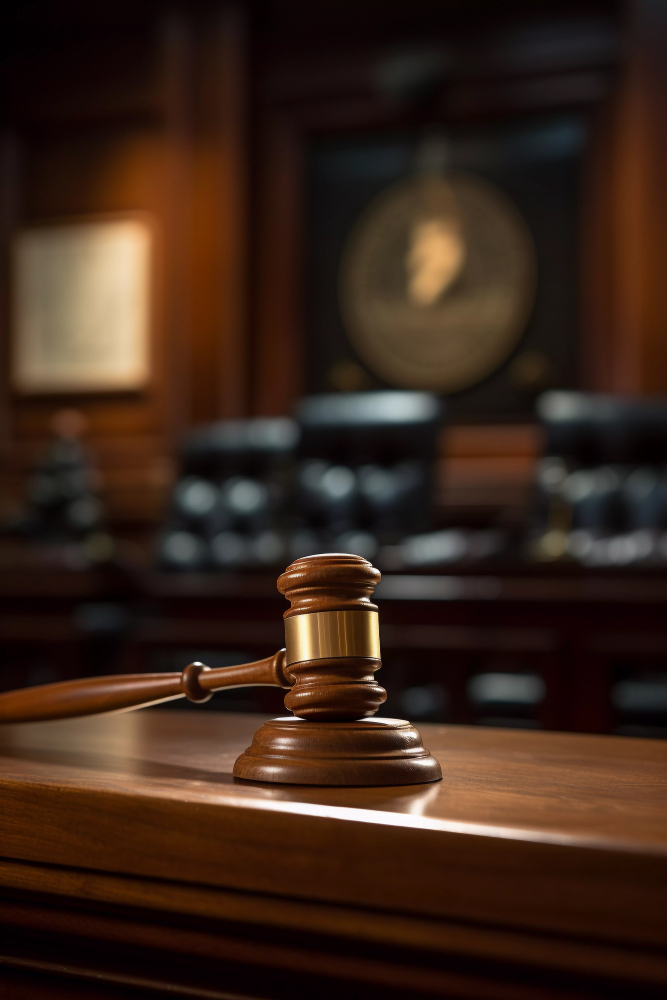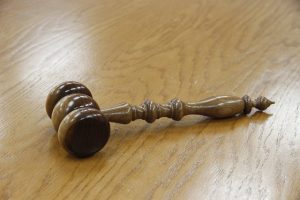Losing a loved one is one of the most painful experiences anyone can endure, and the pain is often exacerbated when the death is due to someone else’s negligence or misconduct. In such cases, pursuing a wrongful death claim can provide a sense of justice and financial relief. However, the legal process can be complex and overwhelming. This is where a wrongful death lawyer comes into play, offering expertise, support, and advocacy to help you navigate this difficult journey. This article explores the vital role of a wrongful death lawyer, highlighting their functions, strategies, and the significant impact they have on your case.
Table of Contents
Understanding Wrongful Death Claims
A wrongful death claim is a legal action brought when someone dies due to the negligent, reckless, or intentional actions of another party. These claims are designed to provide compensation to the deceased’s survivors for their losses.
Legal Grounds for Wrongful Death
To succeed in a wrongful death claim, the plaintiff must establish that the defendant’s actions or inactions directly caused the death of the loved one. The primary elements include:
- Negligence: Proving that the defendant failed to act with reasonable care.
- Breach of Duty: Demonstrating that the defendant had a duty to the deceased and breached that duty.
- Causation: Establishing that the breach of duty directly resulted in the death.
- Damages: Shows that the death caused quantifiable damages to the survivors.
Common Causes of Wrongful Death
Wrongful death claims can arise from various situations, including:
- Car Accidents: Fatal collisions caused by reckless or negligent driving.
- Medical Malpractice: Deaths resulting from medical negligence or errors.
- Workplace Accidents: Fatal injuries occurring in the workplace due to unsafe conditions.
- Product Liability: Deaths caused by defective or dangerous products.
- Criminal Acts: Homicides or deaths resulting from criminal activities.
Who Can File a Wrongful Death Claim?
The eligibility to file a wrongful death claim varies by jurisdiction, but generally includes:
- Immediate Family Members: Spouses, children, and parents of the deceased.
- Life Partners and Financial Dependents: In some cases, individuals who were financially dependent on the deceased.
- Extended Family Members: Siblings, grandparents, or other relatives, depending on the state laws.
The Role of a Wrongful Death Lawyer
A wrongful death lawyer specializes in representing the interests of the deceased’s survivors, providing legal expertise and support throughout the claims process.
Initial Consultation and Case Evaluation
The process begins with an initial consultation where the lawyer evaluates the merits of your case. During this meeting, they will:
- Gather Information: Collect details about the incident, the deceased, and the survivors.
- Assess Evidence: Review available evidence, such as medical records, police reports, and witness statements.
- Explain Legal Rights: Inform you of your legal rights and potential courses of action.
- Determine Viability: Assess whether you have a viable case and the likelihood of success.
Investigating the Incident
A thorough investigation is crucial to building a strong wrongful death case. The lawyer will:
- Collect Evidence: Gather all relevant evidence, including medical records, accident reports, and expert testimony.
- Interview Witnesses: Identify and interview witnesses to support your case.
- Consult Experts: Work with medical professionals, accident reconstruction specialists, and other experts to strengthen your claim.
- Analyze Data: Review all data and documentation to build a compelling case narrative.
Building a Strong Case
The lawyer’s primary role is to build a robust case that demonstrates the defendant’s liability and the extent of your losses. This involves:
- Establishing Negligence: Proving that the defendant’s actions or inactions directly caused the death.
- Quantifying Damages: Accurately calculating the full extent of your damages, including economic and non-economic losses.
- Drafting Legal Documents: Preparing and filing all necessary legal documents, including the complaint and motions.
- Developing Legal Strategy: Formulating a strategy to achieve the best possible outcome, whether through settlement or trial.
Negotiating Settlements
Many wrongful death cases are resolved through settlements. A wrongful death lawyer negotiates on your behalf to secure fair compensation. This involves:
- Handling Communications: Managing all interactions with the defendant’s legal team and insurance companies.
- Presenting Evidence: Provide compelling evidence to support your claim and justify the compensation sought.
- Negotiating Terms: Engaging in negotiations to reach a settlement that adequately compensates you for your losses.
- Advising on Offers: Offering guidance on whether to accept or reject settlement offers based on the strength of your case and potential trial outcomes.
Representing You in Court
If a fair settlement cannot be reached, your lawyer will represent you in court. This involves:
- Filing a Lawsuit: Initiating legal proceedings by filing a complaint with the court.
- Pretrial Proceedings: Handling pretrial motions, discovery, and depositions to build a robust case.
- Trial Preparation: Preparing for trial by organizing evidence, developing arguments, and formulating strategies.
- Court Representation: Presenting your case before a judge and jury, cross-examining witnesses, and making compelling arguments to seek a favorable verdict.
- Post-Trial Motions: Handling any post-trial motions or appeals if necessary.
Key Qualities of an Effective Wrongful Death Lawyer
Choosing the right wrongful death lawyer is crucial for the success of your case. Consider the following qualities when making your selection:
Expertise and Experience
An effective wrongful death lawyer should have:
- Specialized Knowledge: In-depth understanding of wrongful death law and related legal principles.
- Proven Track Record: A history of successfully handling similar cases and securing favorable outcomes.
- Trial Experience: Extensive courtroom experience and the ability to effectively represent clients in trials.
Compassion and Sensitivity
Dealing with a wrongful death case requires a lawyer who is compassionate and sensitive to your situation. They should:
- Listen Actively: Understand your concerns and provide empathetic support.
- Communicate Clearly: Explain complex legal concepts in a way that is easy to understand.
- Offer Support: Provide emotional and procedural support throughout the legal process.
Strong Advocacy Skills
A successful wrongful death lawyer must be a strong advocate for their clients. They should:
- Negotiate Effectively: Skillfully negotiate settlements to secure fair compensation.
- Argue Persuasively: Present compelling arguments in court to seek a favorable verdict.
- Stay Informed: Keep up-to-date with the latest legal developments and strategies.
Common Challenges in Wrongful Death Cases
Wrongful death cases can be complex and challenging. Understanding these challenges can help you navigate the legal process more effectively.
Proving Liability
Establishing the defendant’s liability is often the most challenging aspect of a wrongful death case. This requires:
- Gathering Strong Evidence: Collecting sufficient evidence to prove negligence and causation.
- Expert Testimony: Utilizing expert witnesses to support your claims and provide professional opinions.
Calculating Fair Compensation
Accurately calculating damages is crucial to ensuring you receive adequate compensation. This includes:
- Economic Damages: Covering financial losses, such as medical expenses, funeral costs, and lost income.
- Non-Economic Damages: Compensating for pain and suffering, emotional distress, and loss of companionship.
Dealing with Insurance Companies
Insurance companies often aim to minimize payouts. Overcoming this challenge involves:
- Understanding Tactics: Recognizing common tactics used by insurance adjusters to devalue or deny claims.
- Effective Negotiation: Leveraging legal expertise to negotiate a fair settlement.
Navigating Legal Procedures
The legal process can be intricate and time-consuming. Having a skilled lawyer can help you:
- Meet Deadlines: Ensuring all legal documents are filed within the statute of limitations.
- Follow Procedures: Adhering to court rules and procedures to avoid delays or dismissals.
The Benefits of Hiring a Wrongful Death Lawyer
Hiring a wrongful death lawyer offers numerous benefits that can significantly impact the outcome of your case.
Legal Expertise and Guidance
A lawyer provides expert legal advice and guidance, helping you understand your rights and options.
Maximizing Compensation
With their knowledge and negotiation skills, a lawyer can help you secure the maximum compensation possible.
Reducing Stress
Handling a wrongful death case on your own can be overwhelming. A lawyer takes on the legal burden, allowing you to focus on healing.
Improving Odds of Success
Statistically, individuals represented by lawyers are more likely to receive higher settlements compared to those who represent themselves.
Conclusion
The loss of a loved one due to someone else’s negligence or misconduct is a devastating experience. However, a wrongful death lawyer can provide the legal support and advocacy needed to pursue justice and compensation. From initial consultation to courtroom representation, wrongful death lawyers play a vital role in protecting your rights, building a strong case, and advocating for your best interests. If you or a loved one has suffered a wrongful death, seeking the assistance of a qualified lawyer should be your top priority. Their expertise and commitment can make a significant difference in your pursuit of fairness and closure.




